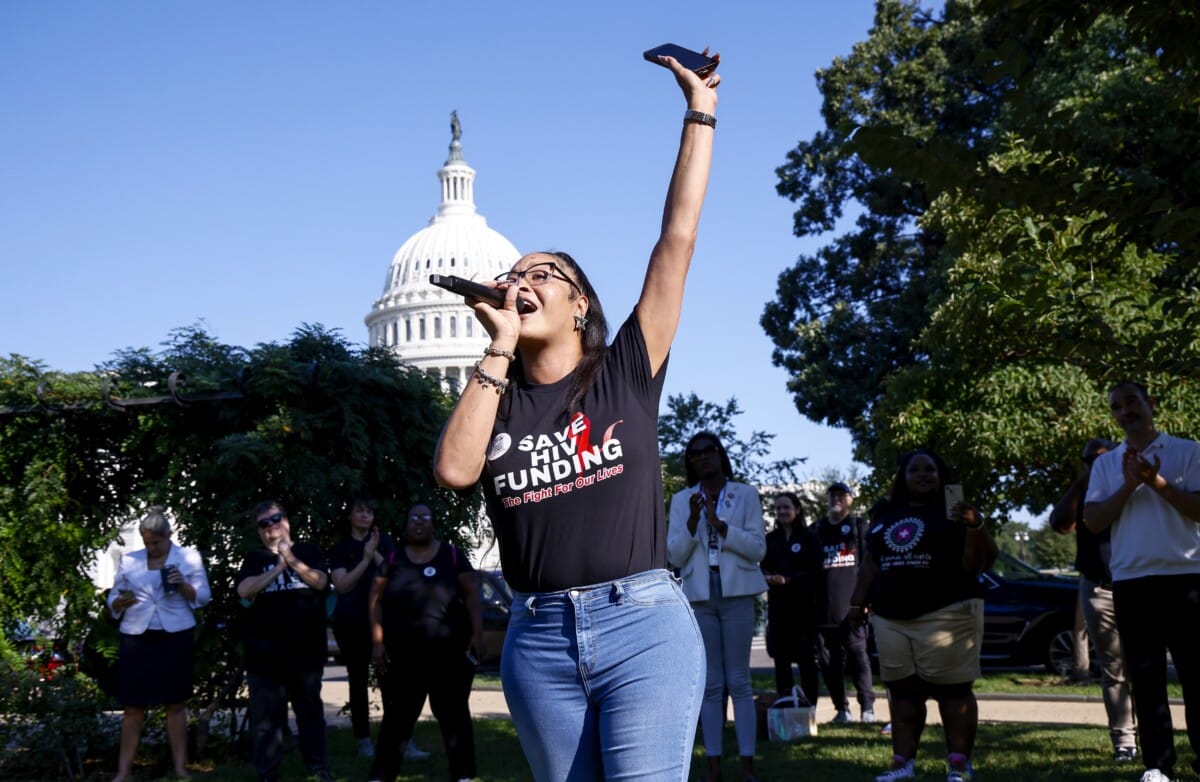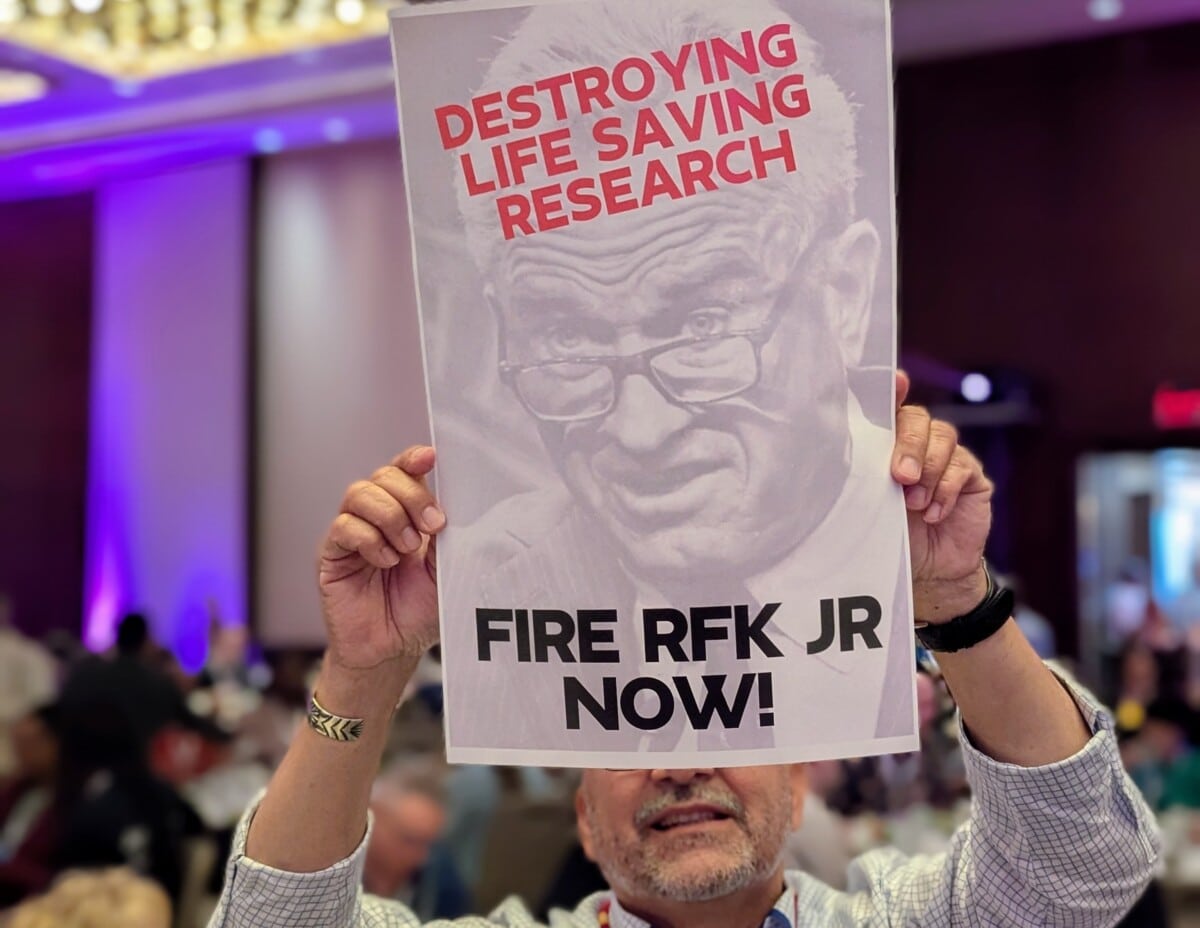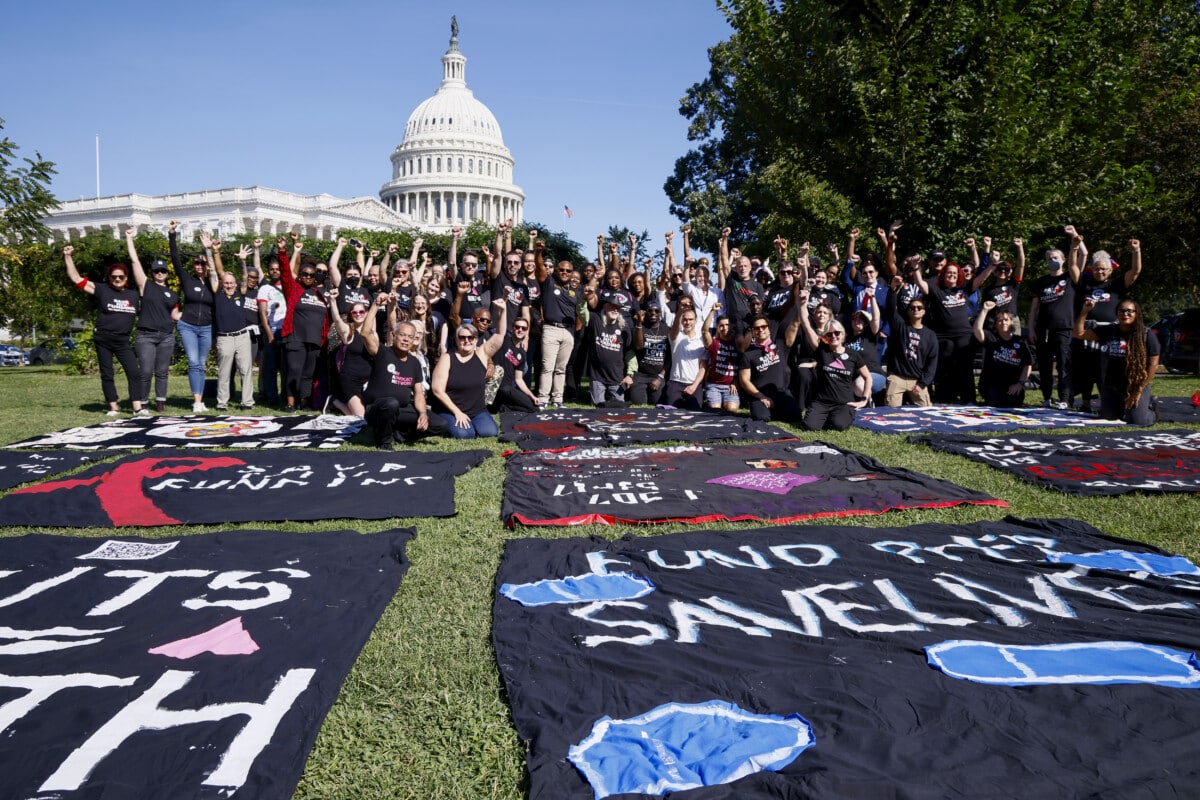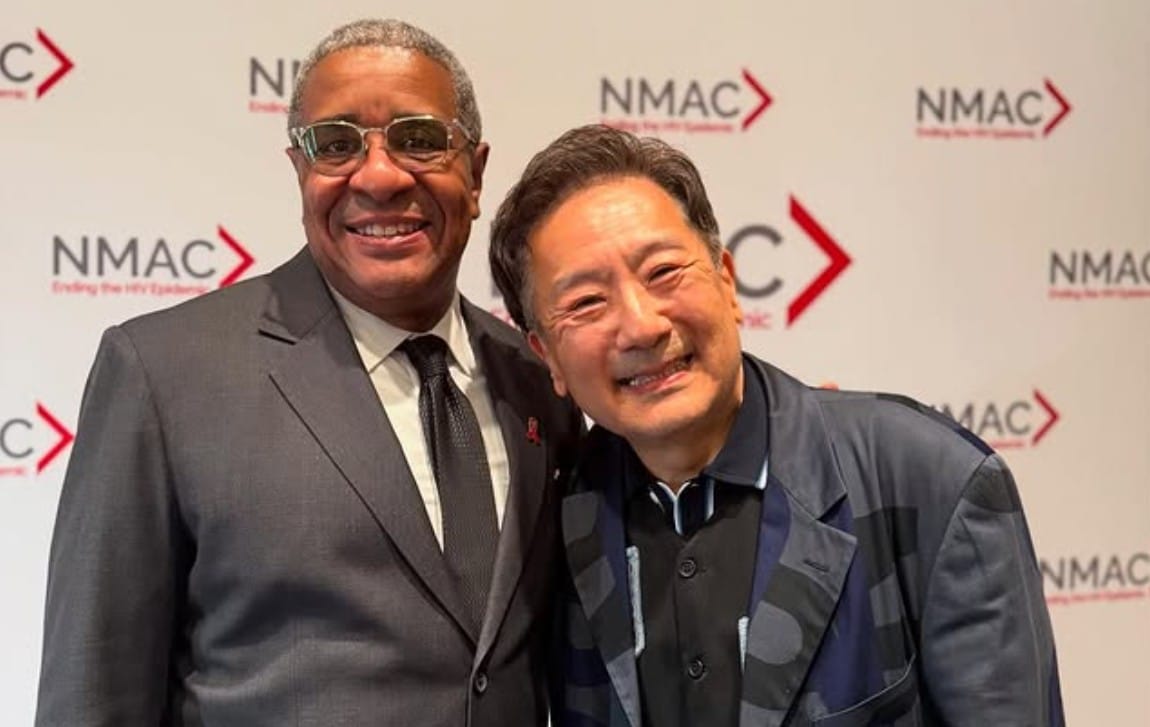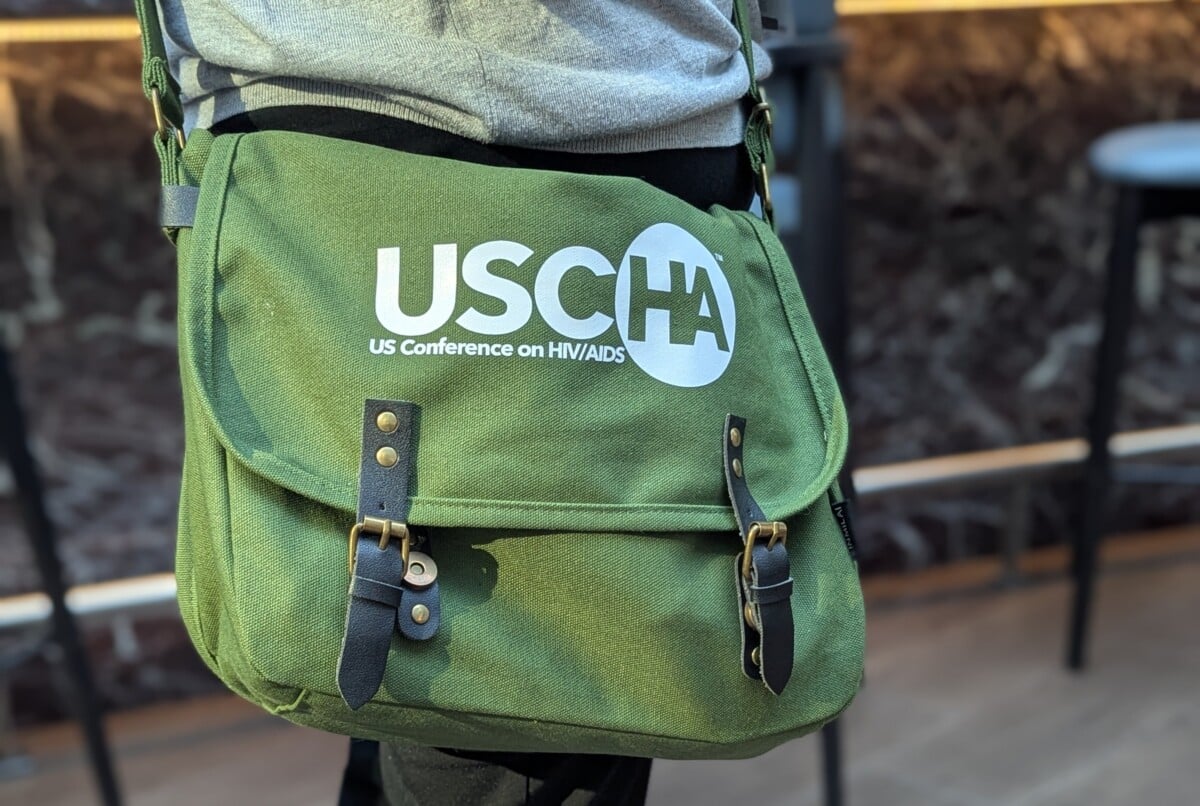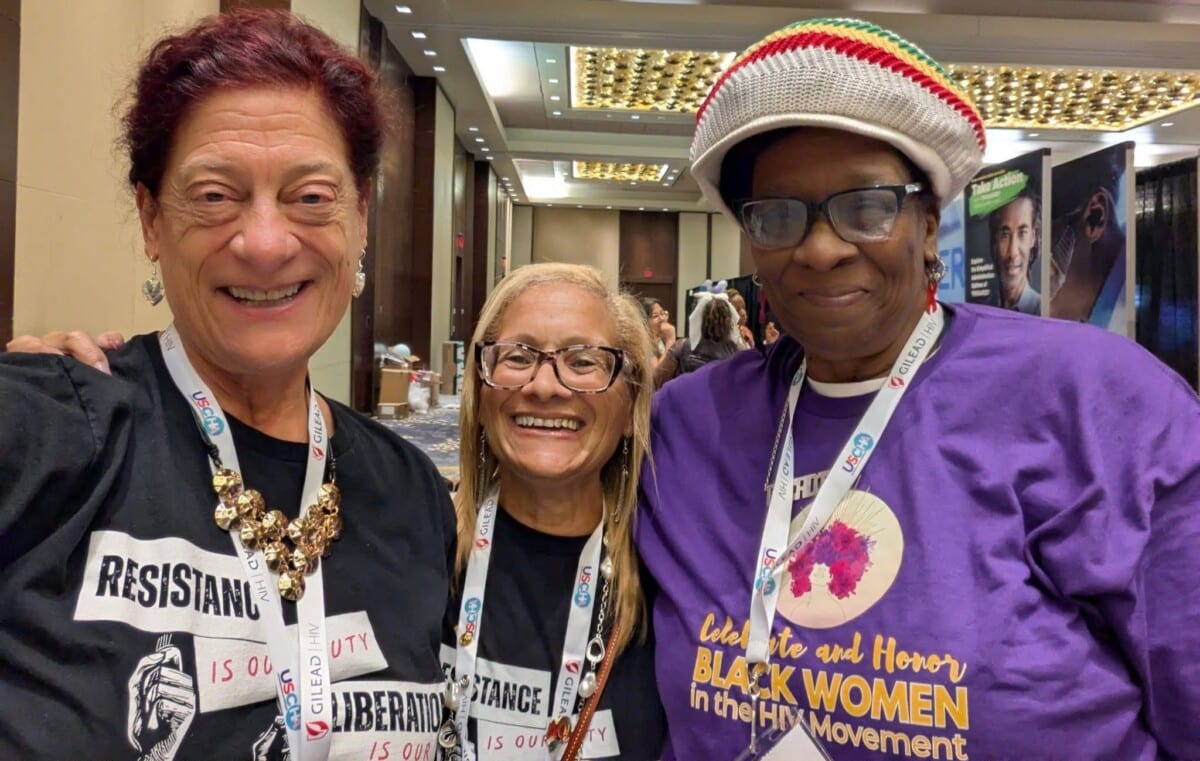Oh, USCHA, how we love you. You are the Grand Hostess of the HIV/AIDS community, and nowhere else can anyone working for, volunteering in, or living with the reality of HIV find so many beloved allies, frontline workers, and friends.
And sometimes, well, we love USCHA in spite of itself.
My takeaways don’t deal with the clinical or research content of USCHA. You’ll find plenty of that elsewhere. I’m more interested in the vibe, the people, and the things that inspired or irked me. (I won’t take space asking USCHA to stop blaring music so loudly before plenaries that we can’t talk with others at our table and make new friends. I have tried.)
Let’s dive into my five takeaways from USCHA 2025.
Without Plenary Activism, USCHA Did Not Rise to the Occasion
There were times when USCHA felt a bit like the dark musical Cabaret, as if we were watching Sally Bowles perform in the Kit Kat Club in Berlin in 1929 while, just outside, freedom burned to the ground.
In an environment where HIV funding – virtually all of it – is on the congressional budget chopping block, it felt ludicrous to take victory laps through HIV/AIDS history, as we did in one plenary, or share emotional, resilient tales about our past, as we did in another, without providing the crucial context that every shred of progress is under attack from a fascist regime.
(The GOP-led budget is winding its way through congress right now, and you can use your voice by going to this site and objecting to the crippling cuts that do real harm to our community. It’s life or death, folks.)
At a conference that has always been known to helpfully schedule protests right into the program (recent years have seen loud, thrilling protests addressing the needs of trans people, the U=U campaign, and those born with HIV), it was simply stunning that there were no protests at all, much less anything to do with the this frightening political moment.
This may very well be the influence of Big Pharma, which sponsors the plenaries and takes charge of its content. Even pharma is feeling the pressure of a belligerent Trump administration and its constant threats. Things can get touchy. But grassroots activism has been and must continue to be central to our efforts.
At least Paul Kawata had some choice words in his parting speech on the last day of USCHA. “For people coming up (in HIV work) today, you are writing the book on fascism,” Paul said to the crowd, “and what you do today will be the story that will define the rest of your lives.”
Powerful words. Too bad we did not demonstrate for the largely young audience what HIV/AIDS activism actually looks like.
Activism Raged Outside the USCHA Conference
Beyond the walls of the Washington Marriott, where USCHA was held, there were visits to the Hill coordinated by NMAC, a rally sponsored by the Save HIV Funding Campaign, and a “Cuts Kill” protest that featured quilt panels (reminiscent of the AIDS Memorial Quilt) containing messages begging congress not to slash HIV prevention and treatment programs.
While I disagree with there being no protests at the USCHA conference itself, I do appreciate the realities of the approach.
View this post on Instagram
“Many of the people that would have been leading an action at the USCHA conference itself were moved to do something outside of it,” Maxx Boykin, manager of the Save HIV Funding Campaign, told me, “especially since we were in DC, where decision makers are.”
Maxx added that protests within USCHA could have been powerful and even instructive for younger advocates to see, but time, resources and energy were stretched to the limit during this tumultuous time in our nation’s history.
We Love Paul Kawata but We are Grooving on Harold Phillips
NMAC has expertly handled the passing of the baton from 36-year executive director Paul Kawata to his successor, Harold Phillips. Not only does Harold have government experience as a former director of the White House Office of AIDS Policy, but as a gay Black man living with HIV, he will bring direct lived experience to the job in a way that cannot be approximated.
Besides, Harold is as open and friendly as he is elegant. He will be a welcome national leader and the response to his new gig has been overwhelmingly positive.
And Harold’s speech during the opening plenary was fire. NMAC needn’t worry about any loss of oratory skills. He was even wearing an “I 💖CDC” t-shirt.
Welcome, Harold!
The USCHA Conference Satchel is On Point
You all know those conference bags. Sometimes they are colorful but impractical, or they don’t translate into anything you might use again. Sometimes they barely hold up for the plane ride home.
Not this year. The canvas bag with USCHA branding – and branding from Gilead, who evidently paid for them – is sturdy and, dare I say, even kind of cool? They came in three colors and I chose the khaki color because I’m as fashionably adventurous as an Old Navy catalogue.
Very cool.
The Theme of HIV & Aging was Welcome and Instructive
Considering conference attendees lean toward younger people working on the front lines, it’s nice to be recognized as an older person, much less have so many of the conference plenary and workshops focus on our needs and issues.
More than half of the people living with HIV in this country are over 50. That figure grows each year. Too many clinical and research questions are still unanswered, but USCHA gave us plenty of food for thought.
Elders were on the main stage during plenaries, leading workshops, and speaking to folks in the hallways. We felt seen. As an aging gay man who has long passed the age of visibility to younger gay men in the bar or grocery store, it was reassuring that my own HIV community hasn’t left me behind.
Jeff Berry, the director of The Reunion Project (the national voice of long-term HIV/AIDS survivors) even worked double duty during USCHA. He was a compelling plenary speaker, sharing his moving story of survival, and then he brought his library of music and his DJ headphones to the Saturday night dance event and spun funk and disco oldies for the crowd. Young and old danced together. It was glorious.
Where did I put my boogie shoes? I know they were around here somewhere.
Bonus: The HIV Media Dinner was a Religious Experience
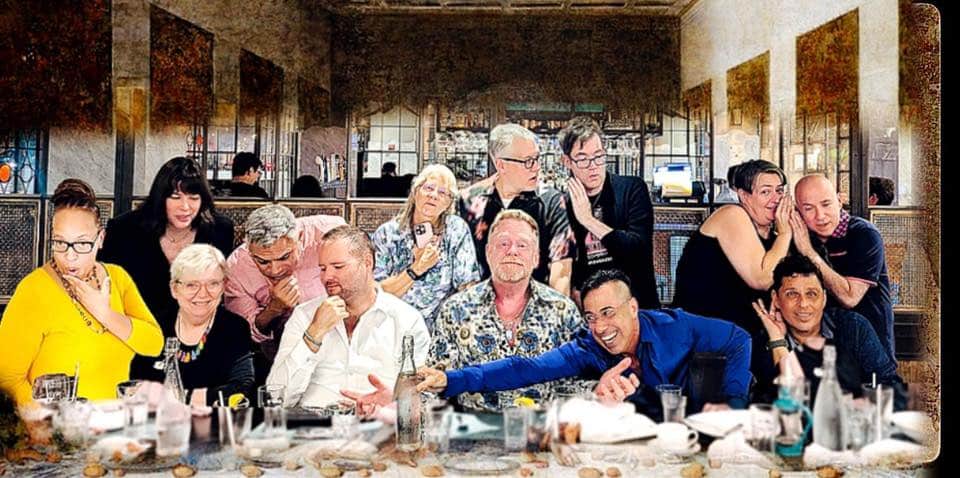
With apologies to DaVinci. Front: Olivia Ford (The Well Project), writer Victoria Noe, Michael Lavers (The Washington Blade), Mark S. King (My Fabulous Disease), writer Charles Sanchez, writer Daniel G Garza, Back: writer Gwenn Barringer, Oriol Gutierrez (POZ Magazine), writer Liz Highleyman, Trenton Straube (POZ Magazine), writer Shawn Decker, Jennifer Morton (POZ Magazine), Rick Guasco (Positively Aware Magazine). Not pictured: Raif Derrazi (Plus Life Media).
If you think HIV community work is underpaid, and it is, you wouldn’t want to know how little it pays to write about it. No one is more aware of that, or is more dedicated to telling our stories, than the talented folks who write about HIV or edit HIV publications and online platforms. It is, like so much of HIV work, a labor of love.
During what has become a yearly tradition during USCHA, yours truly hosted writers and editors from across the journalism spectrum for a dinner event. There is a wondrous lack of competition between us. We’re genuinely supportive of each other and of the stories we are privileged to tell.
This year, as we were gathering our things to leave the restaurant after an evening of friendship and some dishy gossip, I asked everyone to join me on one side of the table and gave them one piece of direction: “look conspiratorial.” Our server snapped three quick pictures and, with apologies to DaVinci, something hilarious and remarkable was created in less than a minute. My literary friends definitely understood the assignment – especially once writer and long-term survivor Shawn Decker added some of a certain classic painting’s background to the photo. (Are those twelve people around me? Insert your own joke about my martyr complex here.)
And that’s it for another year. There’s no doubt our community is under siege, but just as during the most murderous days of the AIDS epidemic, there is still lightness, inspiration, and humor to make the journey bearable. USCHA provided it all.
Thanks for reading, my friends, and please be well.
Mark

